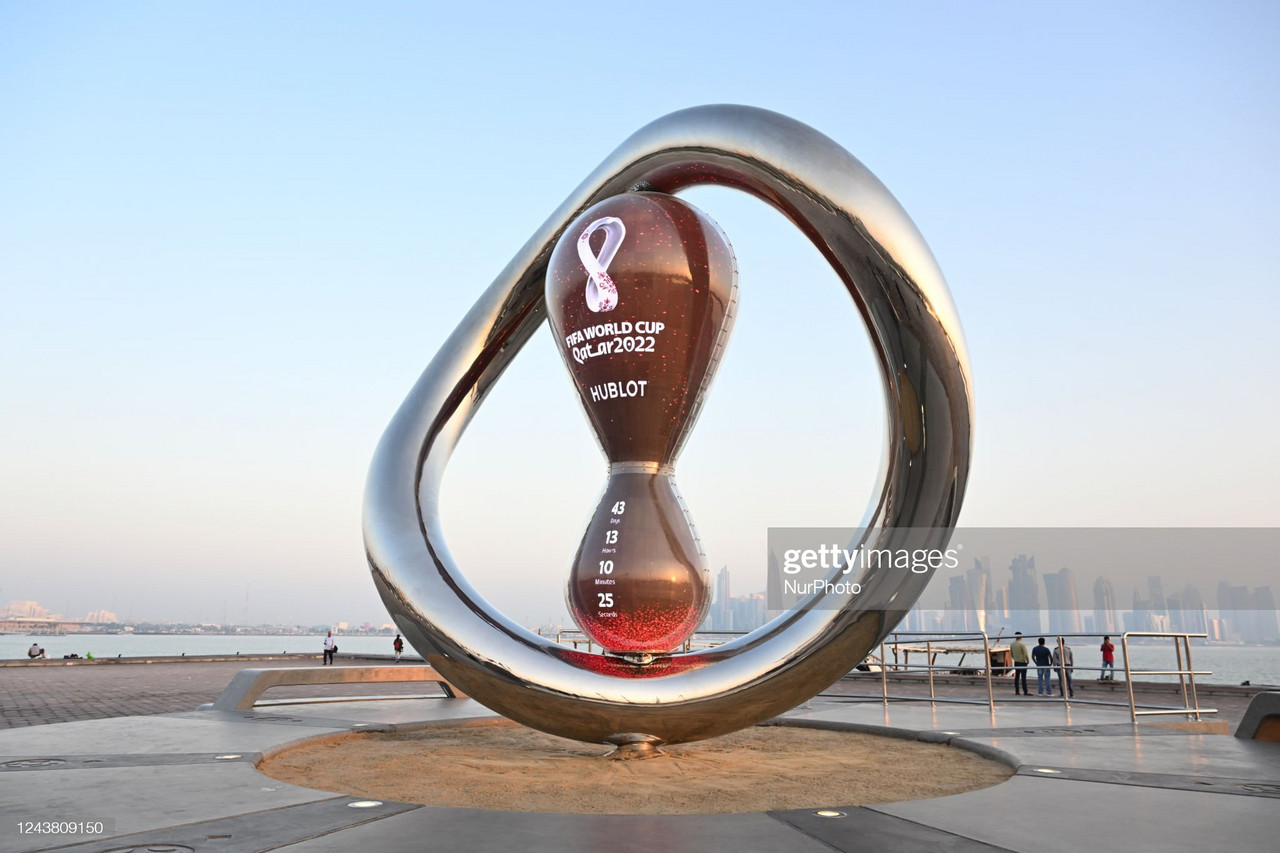As Kylian Mbappé rattles home France's fourth goal, the celebrations are as wild as you would expect. The teenager, football's brightest young star, has just all-but-confirmed Les Blues' victory in the 2018 World Cup final. He is mobbed by his team-mates in delirium, and France now know they will now be lifting the trophy for the second time in their history at the Luzhniki Stadium, Moscow.
The real party, however, is happening over 1500 miles away, as the 90,000 people who have gathered in front of the Eiffel Tower to watch the game on a big screen go absolutely bananas. Red, white and blue smoke is everywhere, confetti is sprayed about with abandon, and strangers embrace each other in ecstasy all the way back to the École Militaire, a kilometre away.
Sadly, should Mbappé and co repeat the feat at the Lusail Stadium in Doha this December, there will be no repeat of those joyous scenes. Paris has joined a number of other French cities in announcing that it will not set up fan zones, or show any Qatar 2022 games in public places, in response to the litany of ethical issues around the tournament.
The choice of Qatar as host nation for the 22nd World Cup Finals has been controversial right from the start. After being selected in 2010 ahead of rival bidders Australia, Japan, USA and South Korea, the Qatari bid was quickly accused of foul play, namely the of bribing FIFA officials for their votes.
FIFA's own report into the matter detailed how the bid had pushed their rules to the absolute limits but stopped short of admitting outright that the World Cup had been bought. In any case, those claims were quickly superceded by even more serious concerns over the treatment of the migrant workers hired to build the stadiums and infrastructure.
Allegations against tournament organisers have included the withholding of workers' wages and passports, effectively rendering them slaves; forcing workers to live in unsanitary conditions; the denial of basic necessities such as drinking water; and, of course, many thousands of deaths.
The exact number of migrant workers who have died as a direct result of their working conditions in Qatar is unknown. However, one report from 2021 claims that over 6,500 South Asian migrant workers have died in the country since the World Cup was awarded.
As if that wasn't repulsive enough, gay fans are also effectively banned from attending the tournament due to Qatar's strict laws against homesexuality. Any offenders face up to seven years in prison, an archaic punishment and one that is starkly at odds with the idea that football is 'everyone's game'.
In this context, it is less surprising that Paris have announced a public-space boycott of the World Cup, and more so that other cities have not followed suit. While there has been widespread discussion in the media about the ethical concerns, there is little in the way of organised action taking place. No nation is refusing to participate, and aside from Denmark's 'protest' shirt which their team will wear during matches, there will be no significant organised dissent.
So, in the absence of any mass boycott taking place in the UK, should we take matters into our own hands? Three of our writers offer their views.
Rosy Cobb - I thought it would never happen but I will still be watching
In 2010, when Qatar was awarded the World Cup, I thought it would never happen. With twelve years having passed since then, there has been every opportunity to ensure that it didn't take place, yet here we are.
Whilst some sponsors, like Hummel, have chosen to take a stance very recently and we are led to believe that there will be some shows of defiance by our FA against the country's poor human rights record, with support for the LGBTQ+ community on Harry Kane's sleeve, it is all a bit too little too late for me. If there had been a will, there would have been a way.
The time of year and the lack of positive stories or images coming out of Qatar or Fifa has led this to be the least engaged and excited I have ever felt ahead of a world cup. Football is for the fans and I don't think Qatar offers an environment in keeping with the spirit of previous tournaments for the supporter or the local communities it has impacted on the ground.
I will still be watching it because I love football, but I didn't consider making the trip out there, the decision stripped Fifa of any credibility and I hope we never see a mid-season tournament again!
Alex Jones - We should boycott it, but I won't
I think we should probably boycott the World Cup, but I am not going to. It wasn't especially surprising to learn of the corruption allegations - this is FIFA after all - though I was been deeply shocked by the treatment of workers in Qatar and the staggering death toll, and am appalled that gay people will not be able to attend.
If I chose not to watch it I don't think it would have any effect or change anything meaningful, but I would still be able to say I took a stand. By watching it I will be participating in it, and therefore legitimising it, in some small way.
But I am still going to watch it, because I love football and this is the greatest football tournament on earth. Like Newcastle or Manchester City fans who have seen their clubs taken over by nation states with awful human rights records, I have absolutely no control over what has happened. I am both incredibly excited for the tournament to start and disgusted by everything that has occured to make it happen.
The irony is that international football itself boasts a purity that has long since abandoned the club game. When you are simply pitting the 11 best players from one nation against another, nobody can buy success, and nobody is barred from entering because of their financial circumstances.
The World Cup is the greatest show on earth. It is a grave shame that we do not have a governing body to match it.
James Kirwan - No point in boycotting without a concerted effort
A boycott, though noble in its' intention, will ultimately solve nothing.
The problem with steering clear of the tournament is that there is usually not a concerted effort from various groups such as supporters, media, sponsors, players, etc. to make much of a difference.
Though still to be an unpleasant experience, knowing the abuse of migrant workers, shocking human rights records and seediness behind Qatar being awarded the World Cup, using the tournament as a way to shine a light on all of this is vital. Fifa should not be excluded from the world’s gaze, the corruption and ease with which business is continually conducted with repressive and morally bankrupt regimes cannot be overlooked.
Despite feeling a strong unease as well as the notion of being a hypocrite I will watch the finals. The World Cup only comes along 4 years so I will find it hard to look away and not get sucked into the various narratives that spring up during the tournament.
Sitting at home watching the competition on TV I feel a nihilist streak run through me; how I view and approach the tournament has no bearing on the outcome of how FIFA and Qatar will ultimately be judged.










































